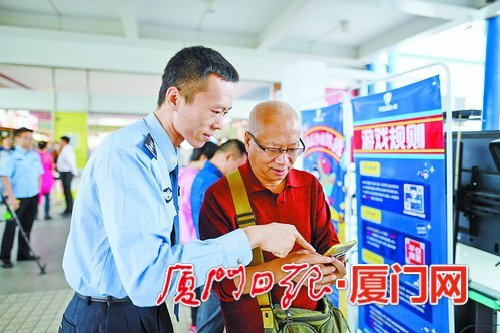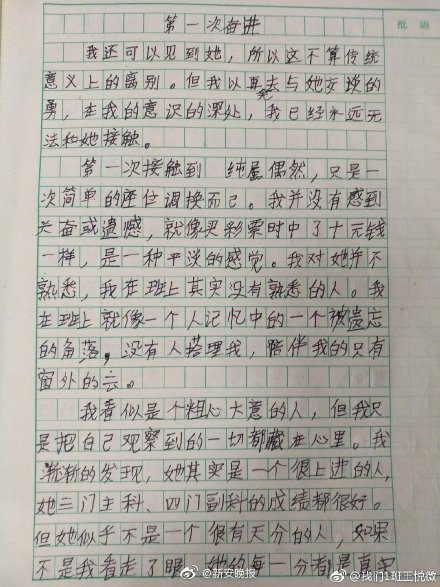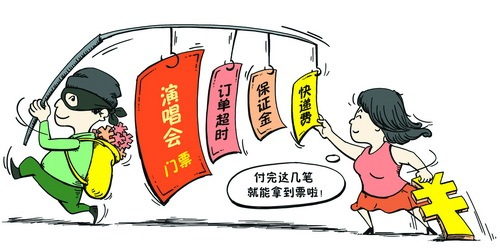中央媒体走基层|《中国日报》Yunnan sprouting into nation's 'vegetable basket'



Yunnan sprouting into nation's 'vegetable basket'
Poverty alleviation model expanded to enrich one of China's most fertile provinces
Long known for its breathtaking landscapes and ethnic diversity, Southwest China's Yunnan province is emerging as a national leader in specialty agriculture, transforming its once-impoverished rural regions into engines of economic renewal.
From sweet apples in Zhaotong to traditional cured meats in Xuanwei and leafy vegetables in Luliang, the highlands are cultivating not only crops, but also opportunities for the 88 counties in the province that have been lifted out of poverty.

Farmers pick apples at a production base of Zhaotong Chaoyue Agriculture in Zhao tong, Yunnan province. XU JING/FOR CHINA DAILY
Fruitful harvest
Perched on the Yunnan-Guizhou Plateau and located in the heartland of the Wumeng Mountains in the northeast of the province, Zhaotong was once a city with the largest impoverished population in China.
Now, it is Southwest China's largest producer of apples thanks to its low latitude, high elevation, generous sunshine and dramatic daily temperature swings. These ideal growing conditions have made Zhaotong's apples sweet, crisp and nationally recognized.
With nearly 66,700 hectares under cultivation, Zhaotong harvested 1.3 million metric tons of apples last year, generating a revenue of 15 billion yuan ($2.07 billion). The apple industry has directly benefited 138,000 households, touching the lives of over half a million residents, according to local officials.

Two farmers divide apples of various sizes into different categories at an orchard in Zhaotong in September. CHEN XINBO/XINHUA
In April of last year, apples from Zhaotong made headlines when they were included in the fresh food supply aboard the Shenzhou XVIII spacecraft.
A major individual orchard in Zhaotong's Zhaoyang district covers 6,670 hectares with 118 apple varieties, one of the largest of its kind. Yang Longjiang, director of the district's industry development center, said advanced agricultural techniques learned from New Zealand and elsewhere are yielding world-class results.
"The orchard applies dwarf root-stocks that yield fruit faster and uses an integrated drip irrigation system that can precisely deliver water and fertilizer, conserving precious resources," Yang said.
"Combined with monthly wages from working at the base, we can earn 80,000 yuan a year and live a better life," said Ding Kaiwen, a former tobacco farmer who works in the orchards with his wife. Their family also receives an annual land lease payment of 14,400 yuan.
The district's agricultural officials report that formerly impoverished households have seen average income increases of 4,800 yuan thanks to the apple boom.
Branding has also played a crucial role in the success of the local apple industry. The Zhaoyang Red, one of the region's signature apple brands, has earned 93 green food and multiple organic certifications, paving the way for exports to the United Arab Emirates, Thailand and beyond.
Premium supermarket chains such as Sam's Club and Freshippo stock Zhaotong apples, selling at 8 to 14 yuan per kilogram. Orchard tourism and fruit-picking festivals have also emerged to breathe new life into local economies.
High-tech ham
Xuanwei ham, a dry-cured specialty with a legacy dating back centuries, is another Yunnan food specialty that has found its place on the dinner tables of Chinese consumers. It sits alongside Italy's Parma ham and Spain's Iberico ham. In 2023, the pig farming and ham industry in Xuanwei generated over 18.5 billion yuan, producing nearly 70,000 tons of ham and lifting thousands of households out of poverty.

Cured meats are air-dried at a production base of local manufacturer Lap-Jon Ham in Xuanwei, Yunnan province. [Photo provided to CHINA DAILY]
Zhou Jianmei, quality control manager at leading brand Lap-Jon Ham, recalls the moment they realized tradition alone wouldn't be enough. "We knew the quality of our pigs was top-tier, but our production chain lagged behind Europe. So we went there to learn."
Inspired by European models, Lap-Jon Ham invested 360 million yuan into advanced facilities, importing Italian fermentation systems and automating the aging process to allow year-round production.
A modern factory capable of producing 3,200 tons of premium ham annually has been built, alongside salami and ham-filled pastries. Last year, the company reported an output value of 478 million yuan and created over 600 local jobs.
"We learned from the refined, standardized production processes abroad and adapted them to the unique characteristics of Xuanwei ham," Zhou said.
According to government data, over two-thirds of Xuanwei's 330,000 rural households are involved in pig farming. Their average incomes rose by 28,100 yuan in 2023, while 36,000 families previously living in poverty saw an average annual increase of 4,300 yuan.
Six "ham manors" in the city have further boosted income for 2,800 households and created more than 500 jobs, with average monthly wages hitting 4,500 yuan.
Zhou said the primary challenge now is popularization. While beloved in parts of southern China where cured meat has long been a traditional delicacy, Xuanwei ham remains unfamiliar in the country's north.
"When you mention 'ham' in the north, many people still think of processed sausage," she said, adding that better awareness among Chinese consumers in the future is expected to expand the market.
Leafy ambitions
The agricultural reinvention of Yunnan extends to the vast, fertile plains of Luliang county in Qujing, the largest flatland on the Yunnan-Guizhou Plateau.

A farmer harvests Chinese broccoli at a plantation in Luliang, Yunnan province, in January last year. WANG YONG/FOR CHINA DAILY
The unique geography and climate of the county in the east of the province have made it an agricultural powerhouse, and the thriving vegetable industry is feeding cities across China and reaching tables as far away as Dubai.
With 6,000 hectares of cultivated land yielding 2.45 million tons of vegetables in 2023, Luliang generated 7 billion yuan, nearly half the county's total agricultural output.
The region has an average annual temperature of 15.2 C, a frost-free period of 335 days, fertile soil and abundant water resources, making year-round production of vegetables possible.
"Thanks to these favorable natural conditions, we can grow a wide variety of fresh, eco-friendly vegetables all year round," said Zhang Raofang, deputy director of Luliang's agriculture and rural affairs bureau.
Italian lettuce, romaine, napa cabbage and Shanghai bok choy are among the stars of the leafy industry. About 93 percent of its harvest is shipped to markets from Beijing to Dubai, Zhang said.
Advanced infrastructure has contributed to the success of the industry. Home to Southwest China's largest cold-chain logistics park, the county dispatches 10,000 tons of vegetables daily, serving the Guangdong-Hong Kong-Macao Greater Bay Area and elsewhere. In 2023, its import-export vegetable trade reached $5.16 million, a 237 percent year-on-year increase.
"The lettuce grown here is thick, crisp and of excellent quality," said Zhang Zixiong, chairman of Yunnan Yuanheng Agricultural Development Corp. His company manages 180 hectares and works with local farmers on another 1,333 hectares.

Farmers reap seasonal vegetables in a field in Luliang in May. WANG YONG/XINHUA
The company recently expanded its export markets to Southeast Asia and the Middle East and has hired young college graduates majoring in foreign languages to help manage its business overseas.
Huang Hongdong, a major vegetable producer in the county, cultivates 6.67 hectares of Chinese arrowhead (Sagittaria sagittifolia), an aquatic tuber known as cigu in Chinese. "Half of our products now go to Malaysia. They really value the taste and quality," Huang said.
The vegetable industry employs 210,000 people in Luliang, from planting and processing to packaging and transport, boosting average household incomes by over 28,000 yuan a year, according to Zhang from the agriculture bureau.
As demand for safe, high-quality vegetables grows, Luliang is playing a greater role in both China's national "vegetable basket" and the global food supply chain, he added.
This year marks the final stage of a five-year transition period aimed at consolidating the gains made in poverty alleviation and ensuring a seamless shift toward rural vitalization.
By cultivating high-quality agricultural specialties and expanding access to broader markets, residents in some of Yunnan's formerly poor regions have not only emerged from poverty but are embracing sustainable opportunities for long-term improvement in their lives.
来源:中国日报


(责任编辑:热点)
-
領到年終第一件事要做什麼?5個關鍵,教你何謂理債式理財|天下雜誌
 【理財五角課】快要領到年終了,領到年終第一件事該做什麼?台股平均報酬率8%,借錢長期投資吧?一般人對債務總是避之不及,一旦背債,連家人都得瞞。事實上,債務並不邪惡,也有辦法善用信用卡,幫助個人信用評分
...[详细]
【理財五角課】快要領到年終了,領到年終第一件事該做什麼?台股平均報酬率8%,借錢長期投資吧?一般人對債務總是避之不及,一旦背債,連家人都得瞞。事實上,債務並不邪惡,也有辦法善用信用卡,幫助個人信用評分
...[详细]
-
【治国理政新实践·河南篇】郑州东三环、东五环先后通车 来看看一到五环都啥样
 【治国理政新实践·河南篇】郑州东三环、东五环先后通车 来看看一到五环都啥样发布时间:2017-10-28 15:50 来源:豫都网 我要投稿[摘要]□记者刘瑞朝 本报讯9月28日上午,G107线郑州境
...[详细]
【治国理政新实践·河南篇】郑州东三环、东五环先后通车 来看看一到五环都啥样发布时间:2017-10-28 15:50 来源:豫都网 我要投稿[摘要]□记者刘瑞朝 本报讯9月28日上午,G107线郑州境
...[详细]
-
 民警向市民介绍如何防范电信网络诈骗。 (林铭鸿摄)民警利用“火眼系统”瞬间监测并实时预警诈骗电话。(张露悦提供)海峡网讯(厦门日报通讯员张露悦、记者程午鹏)昨日,市公安局组织新
...[详细]
民警向市民介绍如何防范电信网络诈骗。 (林铭鸿摄)民警利用“火眼系统”瞬间监测并实时预警诈骗电话。(张露悦提供)海峡网讯(厦门日报通讯员张露悦、记者程午鹏)昨日,市公安局组织新
...[详细]
-
買名車、豪宅、遊山玩水?退休後可能後悔的5種大筆支出|天下雜誌
 不少退休人士剛退休的那幾年,可能會很驚訝,即便扣掉工作成本、持續把錢投入退休帳戶,退休後的花費還是可能遠高於還在當社畜的時候。您的閱讀篇數已達上限立刻訂閱全閱讀,即可享全站不限篇數閱讀
...[详细]
不少退休人士剛退休的那幾年,可能會很驚訝,即便扣掉工作成本、持續把錢投入退休帳戶,退休後的花費還是可能遠高於還在當社畜的時候。您的閱讀篇數已達上限立刻訂閱全閱讀,即可享全站不限篇數閱讀
...[详细]
-
 今年2月,IGN询问Take-Two老板Strauss Zelnick,他对《GTA6》在2025 年秋季发售有多大信心。Strauss Zelnick告诉IGN,他对此“非常满意”。三个月后,或许不
...[详细]
今年2月,IGN询问Take-Two老板Strauss Zelnick,他对《GTA6》在2025 年秋季发售有多大信心。Strauss Zelnick告诉IGN,他对此“非常满意”。三个月后,或许不
...[详细]
-
給孩子的理財課:把錢存起來是好事嗎?小心漲價吃掉財富|天下雜誌
 什麼是通貨膨脹?錢存下來一定是最好的方式嗎?用日常生活情境帶小孩學理財。財經觀念從小培養,引導孩子建立財商知識!您的閱讀篇數已達上限立刻訂閱全閱讀,即可享全站不限篇數閱讀
...[详细]
什麼是通貨膨脹?錢存下來一定是最好的方式嗎?用日常生活情境帶小孩學理財。財經觀念從小培養,引導孩子建立財商知識!您的閱讀篇數已達上限立刻訂閱全閱讀,即可享全站不限篇數閱讀
...[详细]
-
美國財政部長葉倫:台灣是先進半導體唯一來源,對美國安構成威脅|天下雜誌
 美國財政部長葉倫表示全球擁有最先進半導體來源的國家就是台灣,認為此一現象恐構成美國安風險。您的閱讀篇數已達上限立刻訂閱全閱讀,即可享全站不限篇數閱讀
...[详细]
美國財政部長葉倫表示全球擁有最先進半導體來源的國家就是台灣,認為此一現象恐構成美國安風險。您的閱讀篇數已達上限立刻訂閱全閱讀,即可享全站不限篇數閱讀
...[详细]
-
 「一帶一路」政策上路以來,中國慷慨贊助數十個新興國家推動基礎建設。中國雖然藉此提升政治地位,卻也因此身陷疫後新興市場債務危機的核心。面對難題,中國必須與西方合作共同推動債務重組。您的閱讀篇數已達上限立
...[详细]
「一帶一路」政策上路以來,中國慷慨贊助數十個新興國家推動基礎建設。中國雖然藉此提升政治地位,卻也因此身陷疫後新興市場債務危機的核心。面對難題,中國必須與西方合作共同推動債務重組。您的閱讀篇數已達上限立
...[详细]
-
 玻璃历史悠久,性质稳定,是历经时间考验的优良材料,不但能够用于装饰,也可在各种光学仪器中发挥重要作用,甚至能够用来帮助建筑节能降噪。通过使用不同的加工方法,我们能够让玻璃具有不同的特性。有多少
...[详细]
玻璃历史悠久,性质稳定,是历经时间考验的优良材料,不但能够用于装饰,也可在各种光学仪器中发挥重要作用,甚至能够用来帮助建筑节能降噪。通过使用不同的加工方法,我们能够让玻璃具有不同的特性。有多少
...[详细]
-
 在通膨高漲的環境,理財難上加難,想要保有財富,除了知道怎麼賺錢,也應該知道哪些東西不該買、哪些錢不該花。您的閱讀篇數已達上限立刻訂閱全閱讀,即可享全站不限篇數閱讀
...[详细]
在通膨高漲的環境,理財難上加難,想要保有財富,除了知道怎麼賺錢,也應該知道哪些東西不該買、哪些錢不該花。您的閱讀篇數已達上限立刻訂閱全閱讀,即可享全站不限篇數閱讀
...[详细]

 小米手机和平板在日本卖多少钱:15Ultra最高近万元
小米手机和平板在日本卖多少钱:15Ultra最高近万元 河南省4个项目入选国家首批服务型制造示范名单
河南省4个项目入选国家首批服务型制造示范名单 汉阴县人民检察院到实验小学太平校区开展法治专题讲座
汉阴县人民检察院到实验小学太平校区开展法治专题讲座 国网汉阴县供电公司:冬日晨晓电闪修 供电守护暖人心
国网汉阴县供电公司:冬日晨晓电闪修 供电守护暖人心 今晚8:00|郑阿英:用柔弱双肩扛起重任 给仨孩子创造美好未来
今晚8:00|郑阿英:用柔弱双肩扛起重任 给仨孩子创造美好未来
